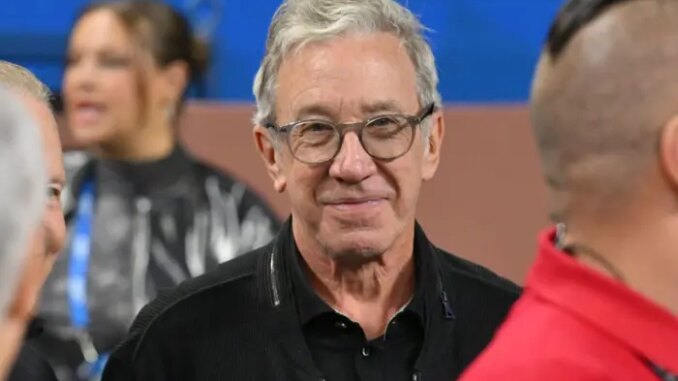
The Unburdening of a Comedian: Tim Allen's Six-Decade Journey to Forgiveness
The public knows Tim Allen as a purveyor of hearty laughter, a familiar face synonymous with home improvement, Buzz Lightyear, and the cheerful chaos of family life. His on-screen persona often projects a robust, somewhat gruff but ultimately good-hearted man, a figure of strength and humor. Yet, beneath the veneer of lighthearted comedy, for six decades, a profound and enduring wound festered – the tragic, senseless death of his father when Allen was just eleven years old, at the hands of a drunk driver. His eventual journey to forgive the man responsible is not merely a personal anecdote but a powerful illustration of the long, winding, and often arduous path to emotional liberation, a testament to the transformative power of finally laying down a heavy, self-imposed burden.
The year was 1964. Gerald Dick, Tim Allen's father, was driving his family home from a college football game when a drunk driver swerved into their lane, instantly claiming his life. For an eleven-year-old boy, this wasn't just loss; it was an amputation, a violent severing of the most fundamental security. The world, once a place of relative safety, suddenly revealed its brutal, capricious underside. The ensuing decades were, by Allen's own admission, colored by this trauma. The absence of a father, the "what ifs," the gnawing injustice – these are not wounds that simply heal with time; they calcify, forming a hard, protective shell around the heart, often tinged with a corrosive resentment towards the perpetrator. Forgiveness, in the immediate aftermath, would have been an unthinkable surrender, an affront to the magnitude of the loss.
For years, the killer remained an unnamed specter, a dark cloud hanging over Allen's emotional landscape. It's easy to imagine how this unaddressed grief and anger might have manifested – perhaps in a restless energy, a drive for control, or even a particular brand of humor that deflects from deeper pain. The sheer effort of not forgiving, of carrying that weight of blame and sorrow, consumes immense internal resources. It's a constant internal battle, a silent dialogue with an imagined enemy, reinforcing a narrative of victimhood that, while understandable, ultimately traps the one holding the grudge. The concept of "letting go" often feels like a betrayal of the one who was lost, a dismissal of their memory.
Yet, it is often in the later stages of life, after much reflection and perhaps the experience of raising one's own children, that the true cost of holding onto resentment becomes clear. Forgiveness, as Allen eventually discovered, is not about condoning the horrific act. It is not about absolving the perpetrator of their responsibility or forgetting the pain they inflicted. Rather, it is an act of profound self-liberation. It’s the conscious decision to untether oneself from the anchor of the past, to relinquish the power that anger and bitterness hold over one's present and future. It is a recognition that the burden of hatred is far heavier for the one who carries it than for the one it is directed towards.
The precise moment or catalyst for Allen’s forgiveness is less important than the six-decade journey that led him there. Perhaps it was a quiet realization, a spiritual turning point, or simply the wisdom that comes with age. What truly matters is the profound shift it represents: moving from a state of being defined by a past tragedy to one of choosing peace and inner freedom. His story illustrates that forgiveness is not a sudden, magical act, but often a gradual softening, a deliberate choice made after decades of wrestling with the dark angels of grief and rage.
Tim Allen's ultimate forgiveness for the man who killed his father after sixty years is a poignant and powerful illustration of human resilience. It reminds us that even the deepest, most ingrained wounds can eventually find a path to healing. It underscores that true strength lies not in clinging to righteous anger, but in the courage to release it – not for the benefit of the wrongdoer, but for the profound and enduring peace of one's own soul. In choosing to forgive, the comedian, often seen as an emblem of American normalcy, reveals himself to be a profound testament to the human capacity for growth, self-compassion, and the ultimate unburdening of the spirit.
